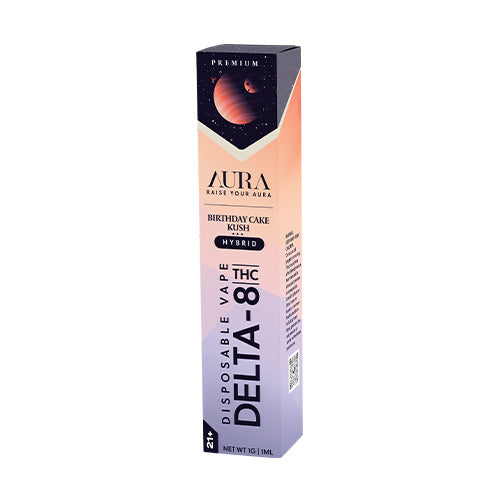Microdosing Cannabis for Quality Sleep: What You Need to Know
In the pursuit of a good night's sleep, individuals are increasingly exploring alternative approaches, and micro-dosing cannabis has emerged as a topic of interest. This short blog post aims to shed light on the concept of micro-dosing cannabis for improved sleep quality and what you need to know before incorporating it into your bedtime routine.
Understanding Microdosing
Microdosing involves consuming small, sub-therapeutic doses of a substance to harness its potential benefits without experiencing its full effects. Applied to cannabis, micro-dosing allows individuals to leverage the plant's properties while minimizing the risk of overwhelming psychoactive reactions.
The Science Behind Cannabis and Sleep
Cannabis contains cannabinoids like THC and CBD, which interact with the body's endocannabinoid system. THC, with its sedative properties, has been linked to sleep-inducing effects, while CBD is celebrated for its calming and anti-anxiety attributes.
Microdosing for Sleep
Reducing Anxiety: Microdosing with CBD-rich strains may help alleviate anxiety, a common contributor to sleep disturbances. CBD interacts with receptors associated with stress, promoting a sense of calm without the intoxicating effects of THC.
Enhancing Relaxation: Sub-threshold doses of THC may induce a relaxed state without triggering the intense psychoactive effects. This can be particularly beneficial for those seeking relaxation before bedtime.
Avoiding Tolerance and Impairment: Microdosing aims to steer clear of the development of tolerance and impairment associated with higher cannabis doses. It allows individuals to enjoy the potential benefits without compromising cognitive function.
Considerations Before Microdosing
Individual Responses: Responses to cannabis are highly individualized. Start with low doses and observe how your body reacts before adjusting.
Choosing the Right Strain: Strain selection is crucial. CBD-dominant strains are often favored for their calming effects, while THC-dominant strains may be chosen for relaxation without significant psychoactive effects.
Consulting Healthcare Professionals: Before incorporating cannabis into your sleep routine, consult with healthcare professionals, especially if you have pre-existing conditions or are taking other medications.
Microdosing cannabis for quality sleep is a nuanced approach that requires careful consideration of individual needs and responses. By understanding the science behind cannabis, the principles of micro-dosing, and consulting with professionals, individuals can explore this alternative with the potential for enhanced relaxation and improved sleep quality. Sweet dreams may await those willing to explore the subtle benefits of micro-dosing responsibly and with informed guidance.
FREQUENTLY ASKED QUESTIONS
CBD capsules, pills or softgels support your body’s Endocannabinoid System (ECS), which helps regulate your natural inflammatory response, stress response, immune function, and sleep cycle so you can better manage stress, burnout, irritation, and discomfort.
Each form of CBD takes a different route through your body, impacting how long it takes to interact with your Endocannabinoid System (ECS) and how long it takes to work varies depending on a combination factors: metabolism, weight, and whether you've recently eaten can influence how long it takes CBD capsules to take effect. It is important to note that CBD builds up in the body over time, meaning that committing to your daily suggested amount is key to the long-term success with your CBD product of choice. Try taking the recommended amount on the packaging for 30 days. You can always adjust the amount as needed — you know your body best.
Understanding the suggested amount of CBD for you starts with understanding how CBD interacts with the body and brain, and particularly with the Endocannabinoid System, also called the ECS. To learn more, checkout How Long Do CBD Capsules Take To Work?
CBD capsules and CBD softgels are best taken at a consistent level for you to understand what works best for you — you know your body best. Try starting with the recommended amount on the packaging, and monitor how you feel over the next 30 days. If you aren't satisfied with the results, try gradually increasing or decreasing the number as needed.
Selecting a CBD product is an individual decision based on your overall wellness goals. CBD capsules are easy-to-swallow pills similar to a vitamin so you don't need to guess how much to take. CBD oils, such as tinctures, commonly use carrier oils including olive oil or medium-chain triglyceride (MTC) from coconut or hemp seed oil which might not taste good. And let's face it, oils are a little messy, and measuring out a precise amount from a small bottle with a dropper might not be an easy task. Unless the CBD in a CBD oil has been optimized for bioavailability, CBD oils won't be absorbed by the body and all the benefits may not be felt.

